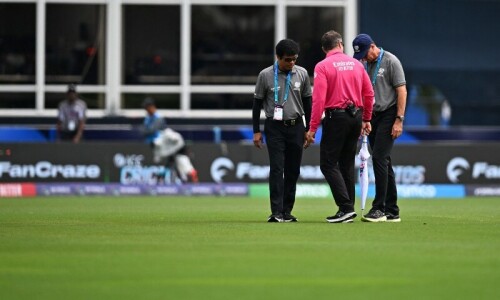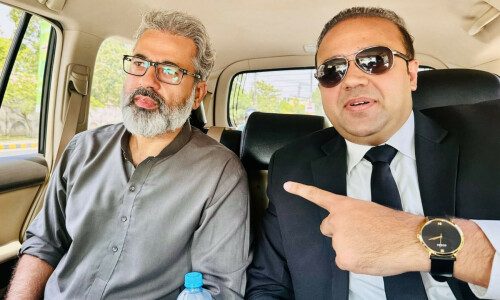IT is better that 10 guilty men go free than one man be wrongly convicted — the words of the English jurist William Blackstone in the 18th century encapsulated a basic precept of criminal justice. That precept was found desperately wanting in the case of Mazhar Farooq, a death-row prisoner convicted for a murder that took place 24 years ago in a village in Punjab’s Kasur district. On Friday, after hearing his appeal against his sentence that had been upheld by the Lahore High Court in 2009, a Supreme Court bench found him not guilty and ordered his immediate release. By this time, the prisoner had spent two decades of his life on death row for no fault of his own, but because an appallingly flawed criminal justice system let him down every step of the way.
It may be cold comfort, but Mr Farooq can at least take solace in the fact that he can finally breathe the air of freedom. In October, the apex court acquitted two brothers in a 2002 murder case, only to find that the men had already been hanged one year back. Miscarriage of justice is not exclusive to Pakistan, but in countries like ours, where the criminal justice system is riddled with shockingly fundamental problems, the chances are that much greater — which is one of the reasons why this paper has consistently opposed the death penalty. People without means or connections are disproportionately impacted. Convenient scapegoats for corrupt law-enforcement officials wanting to demonstrate ‘results’, once they are ensnared in the slow and torturous legal process, there is no telling what the outcome will be, even if the investigation is obviously shoddy and the evidence wholly unconvincing. Indigent accused who cannot afford to hire defence lawyers have to make do with state-appointed counsel who are already overburdened and unlikely to be the cream of the crop. Trials take inordinately long because of repeated adjournments; sometimes also on account of logistical issues such as shortage of transport to bring prisoners to court. Corruption at the trial court level is endemic, with witnesses, police and sometimes even judicial officials susceptible to financial blandishments to influence the outcome of a case. It bears thinking then, that in such a defective system where miscarriage of justice is inevitable, how much of it goes undetected? Or to put it another way: how many people have we executed for crimes they did not commit?
Published in Dawn November 28th, 2016








































